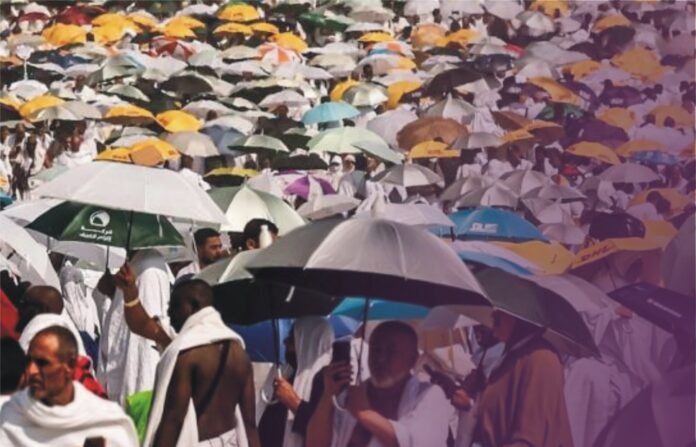This year’s Hajj pilgrimage has seen a tragic rise in fatalities due to extreme heat, with the confirmed death toll nearing 500 and potentially many more. Reports indicate that as many as 600 Egyptian pilgrims may have perished in the scorching temperatures en route to Mecca.
Death Toll by Country
Authorities from various countries have reported the following fatalities:
- Malaysia: 14
- Indonesia: 165
- Jordan: 75 (plus 27 hospitalized and 14 missing)
- Pakistan: 35
- Tunisia: 49
- Iran: 11
- India: 98
The U.S. State Department also confirmed multiple American deaths without specifying a number.
Health and Safety Measures
Despite safety measures implemented by the Saudi Ministry of Health, including cooling stations and urging the use of umbrellas and hydration, the intense heat proved overwhelming. Saudi officials treated over 2,700 people for heatstroke, but the measures could not prevent the high death toll.
Egyptian Response
In Egypt, a crisis unit led by Prime Minister Mostafa Madbouly has been established to support the families of the deceased and coordinate with Saudi authorities to repatriate the bodies. The official Egyptian death toll is currently 28, but the actual number may be significantly higher due to many unregistered pilgrims.
Broader Impact
Thousands of Hajj participants faced temperatures up to 52 degrees Celsius (125.6 degrees Fahrenheit). The pilgrimage, which attracted approximately 1.8 million Muslims this year, was held during one of the hottest months in Mecca. This year’s extreme heat highlighted the challenges and dangers for pilgrims, especially those not registered and lacking access to official facilities.
Regional Reactions
In response to the deaths, Tunisia’s President Kais Saied dismissed the country’s minister of religious affairs, citing potential negligence. Meanwhile, Jordan has issued burial permits for at least 68 of its deceased pilgrims to be laid to rest in Mecca, as per their families’ wishes.
Economic and Religious Significance
The Hajj pilgrimage is a vital religious duty for Muslims and a source of prestige and revenue for Saudi Arabia. Despite the tragic events, the pilgrimage continues to be an essential aspect of Islamic faith, with ongoing efforts to improve safety and manage the increasing number of participants.
The recent fatalities underscore the need for enhanced safety measures and better preparation for extreme weather conditions to ensure the well-being of future pilgrims.



